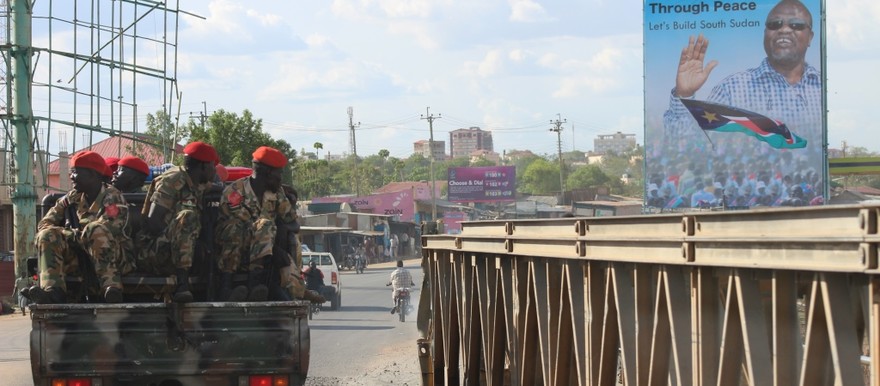The militarization of Juba by the South Sudanese government and rebel SPLM-IO has made the capital more dangerous than any time since the signing of the 2005 Comprehensive Peace Agreement, according to a leaked cable from the Kenyan Embassy in South Sudan.
The government and SPLA-IO “are competing on the military front, trying to outdo each other my amassing troops and armaments around the capital,” the cable reads, which was signed by Kenyan Ambassador Cleland Leshore on 15 April.
Juba is the city where South Sudan’s civil war began in December 2013, initially when Nuer and Dinka members of the presidential guard clashed with each other, before other military and security units got involved.
“It is believed that most of the Government troops are still within the capital. Some are in civilian clothing, while others have changed uniforms and (are) disguised as Police Officers, Prisons Officers and Wildlife Officers,” reads the cable. The ambassador also cited reports that SPLA-IO supporters in civilian clothing have traveled to the capital.
The cable was among a trove of leaked Kenyan government documents obtained by online activists who claim to be affiliated with Anonymous, a hacker group.
Since the return of first Vice President Riek Machar to Juba last week, both the government and SPLM-IO have publicly embraced each other. President Kiir and Machar have spoken about reconciliation, and neither side appears publicly willing break the spirit of peace. Yet the leaked cable is an insight into underlying tensions between the two sides which could still threaten the peace.
Festus Mogae, Chairperson of the Joint Monitoring and Evaluation Commission, has confirmed that the city is still not fully demilitarized. “It’s true that (Juba) has not been verified (demilitarized). Yes, it is a concern, because we don’t want disturbances by accident,” he said.
According to the peace agreement, the government is allowed 3420 soldiers and 1500 police officers, and the opposition is allowed 1410 soldiers and 1500 police officers. Before the return of Machar, the number of government and opposition troops was a point of controversy. A top SPLM-IO general recently doubted the government’s removal of troops from the capital, and the government said Riek Machar was trying to bring too many troops to Juba with heavy weapons.
A top SPLM-IO politician, Dhieu Mathok, who was also recently appointed Minister of Energy and Dams, is calling for reduction of troops in Juba, saying this “sends a clear message to our people that war has stopped. But If we continue building up the troops, people believe that there is a hidden agenda, that people are going to fight in Juba.”
“The role of the military must be minimized,” added Dhieu.
Information minister and government spokesperson Michael Makuei has not responded directly to questions about the number of government troops in Juba, but said that the Ceasefire and Transitional Security Arrangements Monitoring Mechanism (CTSAMM) should count them.
Makuei also said that CTSAMM doesn’t have the “nessecary personnel”, and needs to train more monitors.
However, Kenya’s embassy reported that the government has not complied with CTSAMM’s attempts at verification, according to the cable written by Ambassador Leshore.
The South Sudanese government “refused a request by CTSAMM to provide vital information and statistics for purposes of verification for the redeployment prices it its excess forces” the cable reads. Leshore was unavailable for a comment.
Separately, some diplomats say they are also frustrated with CTSAMM and its leadership. They say the organization isn’t willing to confront both the government and opposition about ceasefire violations. Chairman of CTSAMM, Major General Molla Hailemariam, declined to comment.
Related:
Has Juba been demilitarized? A guide for confused observers (23 Apr.)




